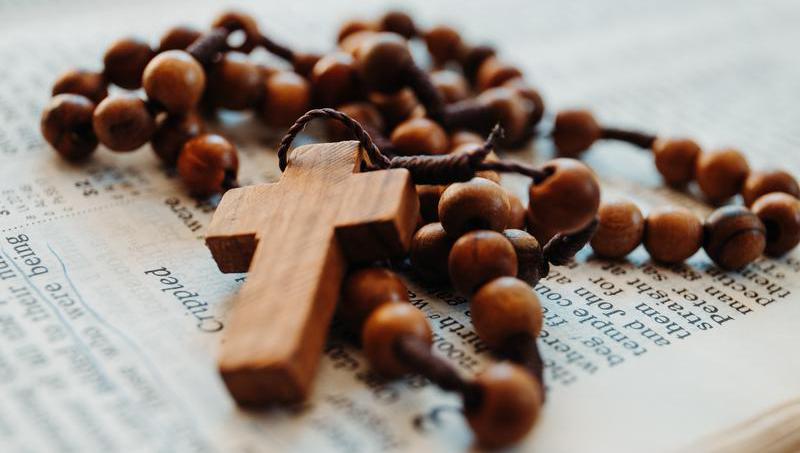by Melanie Pierce
April 5, 2022
Melanie Pierce lives and writes in Kansas City. She holds an MFA in fiction from Stony Brook University, and her work has appeared in Electric Literature, Pleiades, The Pinch, and elsewhere. Currently, she is a 2021-2023 studio resident at the Charlotte Street Foundation, an associate fiction editor at West Trade Review and the reviews editor at The New Territory, and a lecturer at the Kansas City Art Institute. Follow her on Twitter @melanie__pierce.
©2022 West Trade Review
__________________________________________________________________________________________________________________________________________________________________________
__________________________________________________________________________________________________________________________________________________________________________
__________________________________________________________________________________________________________________________________________________________________________
__________________________________________________________________________________________________________________________________________________________________________
__________________________________________________________________________________________________________________________________________________________________________
Transcending Intolerance and Living with Paradox in R/B Mertz’s Burning Butch
NONFICTION REVIEW
Stay Connected to Our Literary Community. Subscribe to Our Newsletter
Image by James Coleman on Unsplash
Burning Butch by R/B Mertz; The Unnamed Press; 392 pages; $17.99
In their memoir Burning Butch, author R/B Mertz builds a fiery narrative fueled by their splintered growing up experience, doubt about their gender identity and Catholic faith, and loved ones who use Mertz as a vehicle to grapple with their feelings about the Church’s prejudice. As a former conservative Evangelical Christian, I’m always drawn to narratives like Mertz’s, and though our religious denominations differ, much of Mertz’s story felt familiar: the homeschooling lifestyle, the obsession with “pro-life” political activism, the despair of exiting the confines of the Church only to learn that, as Mertz phrases it, the Church doesn’t have a monopoly on bigotry, confusion, and abuse. Regardless of religious affiliation, readers who find themselves ostracized in our increasingly hostile world will discover recognition and hope here.
Burning Butch could come with a slew of trigger warnings––abuse, homophobia, suicide––and yet the lens Mertz brings to their story is, in the end, hopeful. The memoir focuses on Mertz’s childhood and college years, flashing forward to their future when it applies to the narrative present. When Mertz is three years old, their parents divorce, the first splintering in Mertz’s life. Mertz leaves rural Pennsylvania for the suburbs of Washington, D.C. with their mother, who goes on to marry a genial Catholic man and start birthing babies on an almost annual basis, eventually making Mertz the oldest of seven children. Both of Mertz’s biological parents reinforce conservative ideals: their mother through community, by raising Mertz among other homeschooling Catholic families, and their father through personal vitriol, lashing out at Mertz for any expressed sexual curiosity or deviation from femininity. Isolated within this conservative pocket of Catholicism and by their father’s abuse, Mertz becomes increasingly aware of their attraction to women and gender nonconforming identity.
As a desperate attempt to submerge their queerness and maintain relationships with their family, Mertz rejects a funded offer from Bennington College in favor of attending a conservative Catholic university. Despite institutionalized homophobia, Mertz begins to date women––only to have those women deem Mertz a bad influence. Even as Mertz finds their way out, they must contend with their past. Burning Butch is a detailed, moving look at well-established yet timely conflicts: religion vs. queerness, family ties vs. liberation.
Mertz guides readers through the decades of their life and heavy themes with a steady hand. The first chapter of each part sets up the overarching theme that loosely holds the cluster of chapters together, signaling the period of time the part will cover and touching on the main themes of the section and the book as a whole: performing appearance, guilt and family pressure, the search for identity and the mentors who affirm or reject the search, the enduring nature of trauma, and learning the language of survival. In the narrative, Mertz finds comfort and clarity in musicals and poetry, and the references to such throughout the book offer moments of levity for the reader.
What sets Mertz’s work apart from other memoirs about surviving religious intolerance is the complexity with which Mertz examines the question: What does it mean to be liberated? The further Mertz gets from their upbringing, the more they realize that leaving Catholicism is not an escape from homophobia and transphobia, and that within queer communities, bigotry exists––a reality Mertz encounters as a non-binary person. Plus, the assumptions made by their secular peers about Catholicism don’t always ring true to Mertz.
The way Mertz flashes forward to their future years serves to position the trajectory of both their lived experience and the Catholic Church as broadly positive––challenging, but redeemable. As a former person of faith, I was moved by many of Mertz’s final reflections, especially one on felix culpa, the theological concept that beauty emerged from the Fall of Man––without sin, there would be no need for redemption, and the tragedy of a perfect world would be missing the opportunity for transformation. Mertz builds on this a few pages later, drawing a connection between the legacy of Joan of Arc to not only their story, but also to every person of faith, and to everyone toiling for revolution. As Mertz narrates, after Joan of Arc was captured by the British, she was handed over to the Church, who refused to believe God would speak to a woman and burnt her at the stake for being a heretic and a witch. A few hundred years later, the same church venerates Joan of Arc as a saint. At the feet of the Joan of Arc statue in St. Paul’s Cathedral in Pittsburgh, Mertz has a moment of paradoxical epiphany: Joan of Arc was both a Catholic mascot and a “heretical, witchy gender enemy” of the Church.
Toward the end of Burning Butch, I heavily starred a paragraph: “[Cathedrals in Europe] were built by thousands of people over generations, but the people who made these incredible structures wouldn’t even see them completed, nor their children. I knew I’d spend my life pushing my culture just a tiny step forward, hopefully, like building a part of one of those cathedrals. Eventually some queer kid would be able to just walk in if they wanted to and not be afraid.” To possess the capacity to envision a redeemed future for a broken institution is compelling, even noble in our current era. When Mertz is in undergrad, a mentor tells Mertz that, they’re so good and so smart, if they could just get over the “whole gay thing,” they could accomplish so much good in the world––they could become a saint. With this book, Mertz becomes a saint, but for a more progressive Church, and for anyone working to blaze a trail through intolerance.




